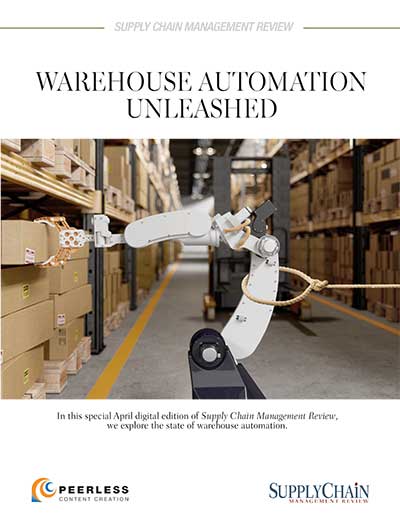to the most recent edition of the Non-Manufacturing Report on Business, which was issued today by the Institute for Supply Management (ISM).
The index ISM uses to measure non-manufacturing growth—known as the NMI—was 53.9 in November (a reading of 50 or higher indicates growth is occurring), which was 0.8% below October's 54.7. The NMI headed up for the 118th consecutive month, and the November NMI is 1.9% below the 12-month average of 55.8.
ISM reported that 12 non-manufacturing sectors reported growth in November, including: Real Estate, Rental & Leasing; Health Care & Social Assistance; Arts, Entertainment & Recreation; Accommodation & Food Services; Retail Trade; Finance & Insurance; Transportation & Warehousing; Management of Companies & Support Services; Information; Utilities; Professional, Scientific & Technical Services; and Public Administration. The five industries reporting a decrease are: Agriculture, Forestry, Fishing & Hunting; Mining; Wholesale Trade; Construction; and Other Services.
The report's key metrics were mixed in November, with:
-business activity/production was down 5.4% to 51.6, growing for the 124th month in a row;
-new orders rose 1.7% to 57.1 also up for the 124th month in a row;
-employment saw a 1.8% gain to 55.5, growing for the 69th consecutive month;
-supplier deliveries slowed at a slower rate, from 52.5 in October to 51.5 in November (a reading above 50 indicates contraction);
-prices rose 1.9% to 58.5, rising for the 30th consecutive month; and
-inventories were flat at 50.5, growing for the fourth consecutive month
Themes in the report submitted by ISM member respondents focused on various topics, including business conditions, labor availability, tariffs, and the economy.
An agriculture, forestry, fishing, and hunting respondent said demand is generally sluggish and back to summertime levels.
And a management of companies & support services did not hold back on how tariffs are impacting business, saying: ““Tariffs are impacting prices for a broad array of products used in the delivery of services and completion of projects for our clients. Upward pressure is impacting suppliers and their pricing to customers. We are seeing no relief from our customers, so we're being negatively impacted by tariff-driven price increases. Numerous suppliers report looking for alternative manufacturing/supply locations outside of China, but with limited or no success so far.”
A professional, scientific, and technical services respondent was more upbeat, noting that
there is optimism because the economy appears to be on autopilot, despite all the political distractions, the stock market seems invincible, [and the] trade war with China appears to be in a stalemate. The respondent also said that job growth appears to be reaching an equilibrium point, and final economic demand appears strong, with positive spend forecast for the holidays.
In an interview, Tony Nieves, chair of the ISM's Non-Manufacturing Business Survey Committee, said that November's non-manufacturing output was solid, considering it followed a very strong October performance.
“These numbers are good and are welcome, especially coming off of a strong October, which saw manufacturing contracting and some pullback in non-manufacturing as well,” he said. “Even through November is below the 12-month average, everything still looks good, and we are on track for incremental growth. I think right now we are all feeling the effects of the trade war, so even though it is more concentrated in the manufacturing arena, it affects non-manufacturing in certain areas in certain commodities.”
That is seen in the inter-dependence between the two sectors, where suppliers for the services [non-manufacturing] sector come from manufacturing and vice versa,” he explained. “If they are waning a bit in their activity, they tend to not spend the money over into the non-manufacturing sector and vice versa.”
When asked which non-manufacturing sectors are feeling the impact of the trade war most, Nieves cited how pork products are not being exported at the same rate as past levels, with China being the largest importer of U.S. pork exports. And he said it is the same case with soy products.
On the import side, he pointed to things like furniture, equipment and lighting fixtures that come from China, in addition to consumer electronics, which has had a major impact on the retail side.
Through the first 11 months of 2019, Nieves said the non-manufacturing sector had some carryover from a robust 2018 into 2019, with the second half of 2019 not as strong but still reflecting growth.
“All indications are we are going to stay on this path, but if there is a resolution to the trade issues and other geopolitical concerns out there, we will see an even more robust economy,” he said. “There will be strong uptick in both [non-manufacturing and manufacturing] sectors if we get some resolutions on some things.”
Should a trade deal with China not be reached until after the 2020 election, which President Trump said yesterday is a possibility, Nieves said it will likely result in companies developing alternate supply routes as one way to address it.
“The Chinese may want to stall, in the event a new administration comes in, but I also think the current administration will want to get a win before the election,” he noted.
SC
MR

Latest Supply Chain News
- Tech investments bring revenue increases, survey finds
- Survey reveals strategies for addressing supply chain, logistics labor shortages
- Israel, Ukraine aid package to increase pressure on aerospace and defense supply chains
- How CPG brands can deliver on supplier diversity promises
- How S&OP provides the answer to in-demand products
- More News
Latest Resources

 Explore
Explore
Topics
Latest Supply Chain News
- Tech investments bring revenue increases, survey finds
- Survey reveals strategies for addressing supply chain, logistics labor shortages
- Israel, Ukraine aid package to increase pressure on aerospace and defense supply chains
- How CPG brands can deliver on supplier diversity promises
- How S&OP provides the answer to in-demand products
- AI, virtual reality is bringing experiential learning into the modern age
- More latest news
Latest Resources

Subscribe

Supply Chain Management Review delivers the best industry content.

Editors’ Picks




